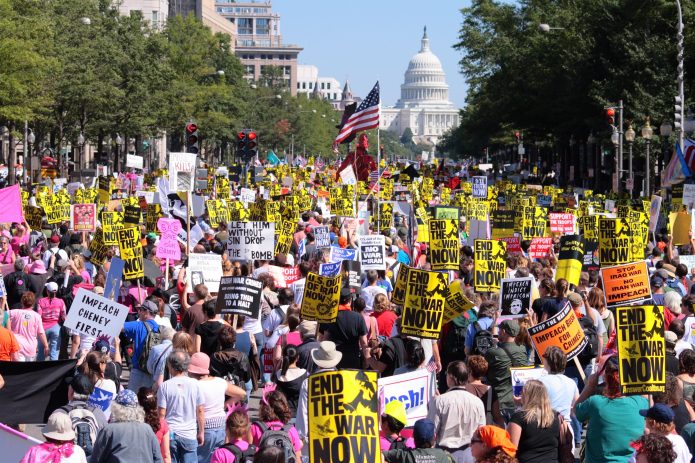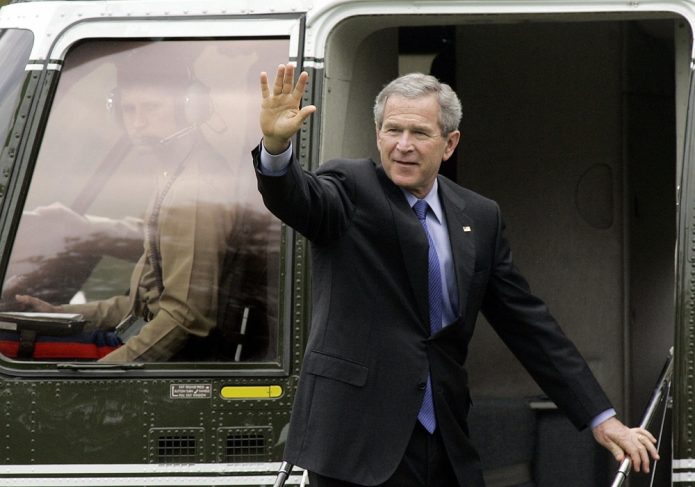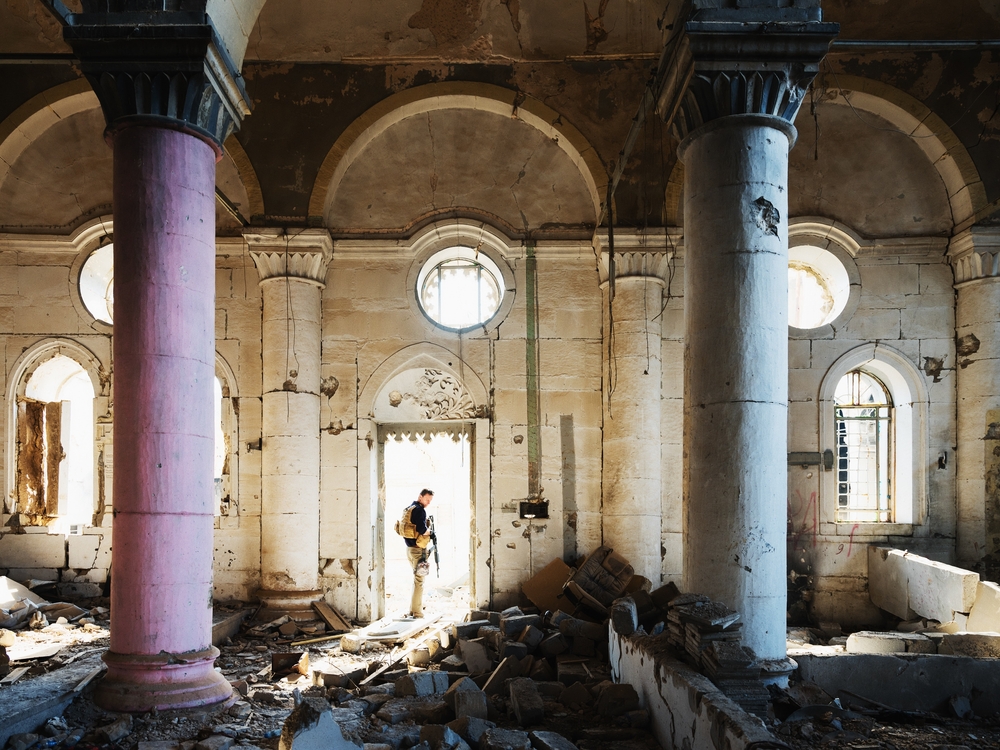2023 marks the 20th anniversary of several critical events in the history of IPS, the nation, and our world. The following landmark events all occurred in early 2003:
- The global movement against the Iraq War (February 15)
- The official start of operations by the Department of Homeland Security (DHS)
- The U.S. invasion of Iraq (March 19)
Along with the rest of the security state built after the 9/11 terrorist attacks, the Iraq War and DHS militarized U.S. foreign and immigration policy to a dangerous degree. Both at home and abroad, the so-called “war on terror” has made our world more dangerous in ways we’re still reckoning with.
As our groundbreaking 2021 State of Insecurity report noted, in the two decades after 9/11, the U.S. spent $21 trillion on foreign and domestic militarization. Even today, our militarized spending continues to rise year after year at the expense of far more urgent — and less destructive — priorities.
But these moments also catalyzed some amazing movement energy and helped inspire a generation of activists, including many of us here at IPS. That energy continues to fuel our public scholarship on these issues and more, even 20 years later.
Below, we round up some of our recent work on the occasion of these 20th anniversaries. We’ll add more to this collection as we produce it.
The World’s Largest Anti-War Mobilization (March 19, 2003)

A mass of anti-war protestors march down Pennsylvania Ave. toward the Capitol Building in Washington, DC on September 15, 2007, demonstrating against the Iraq War. ( Shutterstock)
IPS played a pivotal role in the global movement against the looming U.S. invasion of Iraq. Together with our partners in the peace and justice movements, IPS helped launch and inform the largest coordinated anti-war protest in history on February 15, 2003.
Phyllis Bennis recounts this history in her piece, 20 Years Ago, the World Said No to War. Read it for a firsthand account of the mobilization and our victory in getting the UN to reject the war, complete with photos and video clips from the era, and a reflection on the movement’s lasting significance.
Meanwhile, our expert Karen Dolan helped coordinate Cities for Peace, the brainchild of our late co-founder, Marcus Raskin. That effort organized the creation and passage of anti-war resolutions in over 330 U.S. cities, towns, and state legislatures. The movement eventually went global and was documented in the National Archives. Karen recounts that history here.
A Dangerous Turn in Our Immigration Policy (March 1, 2003)

Shutterstock
Meanwhile, the Department of Homeland Security (DHS) — and the new Immigration and Customs Enforcement (ICE) agency under it — hyper-accelerated the militarization of U.S. borders and brought the “war on terror” home to U.S. communities.
In Newsweek, Lindsay Koshgarian summed up the department’s two-decade legacy as “the systemic abuse of minority communities, a dangerous militarization of American life, and a massive waste of money that sapped resources from addressing the real threats to our homeland.”
On an Instagram livestream led by our partners at the Defund Hate coalition, Alliyah Lusuegro added that DHS has institutionalized and operationalized xenophobia and racism as core elements of our immigration system.
In a syndicated op-ed for our OtherWords service, Lusuegro also shared a personal account of growing up undocumented in the shadow of DHS. But as a DACA recipient, she’s also seen that there’s a better way. “I want to exist freely,” she writes, “not have my right to live equated to my immigration status.”
The U.S. Invasion of Iraq (March 19, 2003)

George W. Bush (Shutterstock)
Despite near-global opposition and a refusal by the United Nations to authorize it, the U.S. marched head-on into a disastrous war in Iraq based on the lies that Iraq had weapons of mass destruction and was somehow to blame for the terrorist attacks on 9/11.
That moment helped set IPS community members of all ages and generations on a course toward activism. In this collection, IPS staff reflect on the 20th anniversary of the U.S. invasion and the profound impact of the war on us and our work. Some of these quotes are also featured in this beautiful Instagram series our Sarah Gertler prepared.
Decades later, it’s clear what the Iraq War truly cost — as Peter Certo writes, that cost can be measured in lost lives as well as lost opportunities. Instead of decarbonizing our economy or ending child poverty, he writes, we got “war, torture, and mass surveillance.”
“But fortunately, that’s not the end of the story,” he concludes. “Younger generations have burst open the numb, negligent politics of the Iraq War era with demands for all that was due plus interest.”
The healthier, safer, and more peaceful future that newer generations are now rising up to demand is still possible. And we’re proud to fight besides the movements who will win it.
